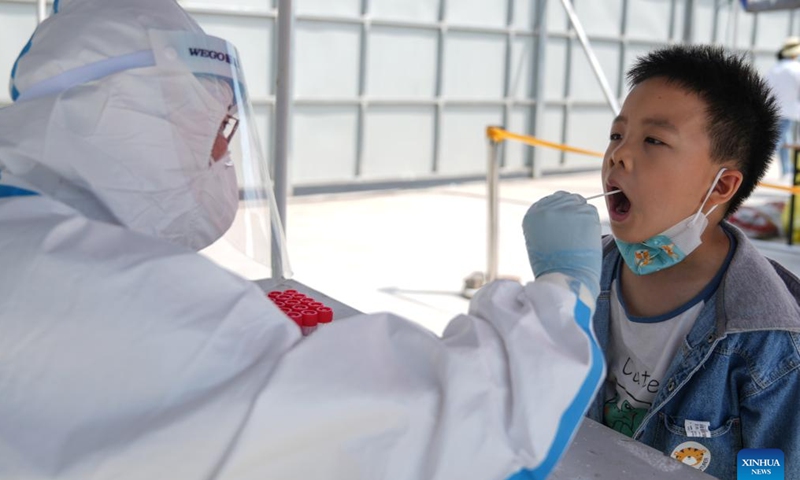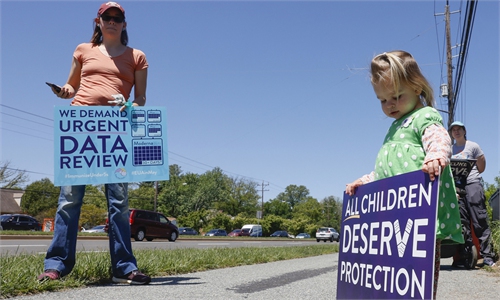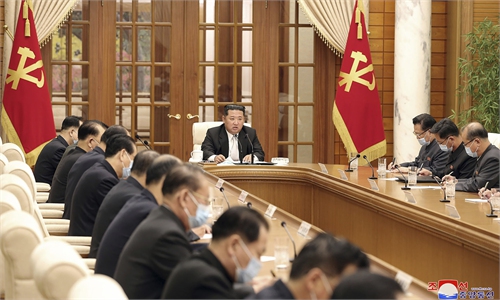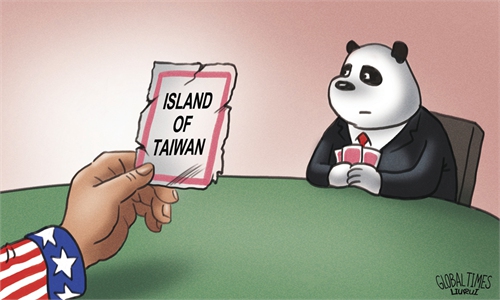‘Over-prevention’ complaints could be ‘mincing’ as dynamic-zero policy meets most demands of society

A medical worker takes a swab sample from a resident for a nucleic acid test in Xicheng District, Beijing, capital of China, May 5, 2022. Beijing's 12 districts have carried out three rounds of nucleic acid screening from Tuesday till Thursday on a daily basis to curb the COVID-19 resurgence. (Xinhua)
The number of COVID-19 cases in Shanghai is declining rapidly, and the reopening of the city has become a visible hope. Yet the battles to be faced in China are still uphill, putting the patience of the society to test.Several scientific studies suggest that if China's current epidemic spreads without any control, it will kill 1.5 to 1.6 million people in the next few months, while the country's ICUs will be overcrowded with patients. I believe this is not an alarmist talk, and the relevant studies are serious and scientific.
On the other hand, this round of battle against the Omicron variant is of very high cost. There is no highly effective vaccine in the world to stop its spread, and the COVID-19 vaccines mainly play a significant role in the prevention of severe diseases caused by the epidemic, nor is there a truly effective COVID-19 treatment drug. Apart from medical measures, the organizational control ones must be taken to stop the spread of the epidemic and reduce death rates. However, the high transmissibility of Omicron has reduced the efficiency of previous measures, leading to their enhancement in many places. However, the effects of the control measures are still far from satisfactory.
There have been many false-positive cases in Shanghai where nucleic acid tests mis-tested healthy people as positive patients. The public was angry, but experts believe that the rate of false tests for cases of Omicron will surely be higher, so repeated tests were needed to avoid false results.
In the past two years, Beijing quickly stopped transmission through general controls after outbreaks and achieved zero new COVID-19 cases. However, this round of control measures in Beijing include asking people in several districts to work from home and ceasing dine-in food service in the city. In addition, key areas have been conducting repeated nucleic acid testing for all people, but new chains of infection are still emerging. The situation is unprecedented since the first outbreak of the epidemic.
Chinese public opinion is also more divided. In places that have been controlled for a long time, there have been complaints and even questions about the legality of forcing non-positive people into centralized quarantines and forcibly entering the homes of those who tested negative to carry out thorough disinfection. As the number of lockdown and semi-lockdown cities increases, criticism of "over-prevention" is resonating more and more on the internet. But there are still many people living in low-risk regions who fear the spread of the epidemic and support strong control measures, while resenting those in big cities who complain as "mincing."
China is so big and COVID-19 knows no borders. Therefore, China's epidemic fight policies should be coordinated by the Chinese government and we must act jointly. The dynamic-zero policy still meets the most demands of society. As the central government has made this policy, local governments should implement it despite possible difficulties. And the central government will reflect on the realities and decide what to do next.
Epidemic prevention is a matter of science. New problems occurred because of virus mutations, and new difficulties emerging in the epidemic should be realistically put on the table. And discussions of policy options are not unhelpful. However, we should strongly oppose those who label fighting the epidemic as "inhuman" or "creating difficulties out of nothing" because of the specific problems and frictions at the grassroots level. We also oppose the idea that China should learn from the West to open up regardless of our own conditions. The US and the West have suffered from several rounds of mass infections, with a large number of fragile, vulnerable lives lost to the novel coronavirus. Against such a backdrop, China cannot repeat the mistakes of the West, and our next strategy must be closely in line with China's realities.
Looking a little further, China will certainly continue to protect the lives and health of its people. It will also keep protecting the proper order of economic and social life, while continuously integrating and exploring better approaches based on the experience and lessons learned from the current round of fighting COVID-19. The work of the Party and our government is firmly people-centered. What the people want will certainly be reflected in state policies, and the interests of different groups will also be taken into account. It is the only right choice for us to follow our country to move forward together.
The author is a commentator with the Global Times. opinion@globaltimes.com.cn




